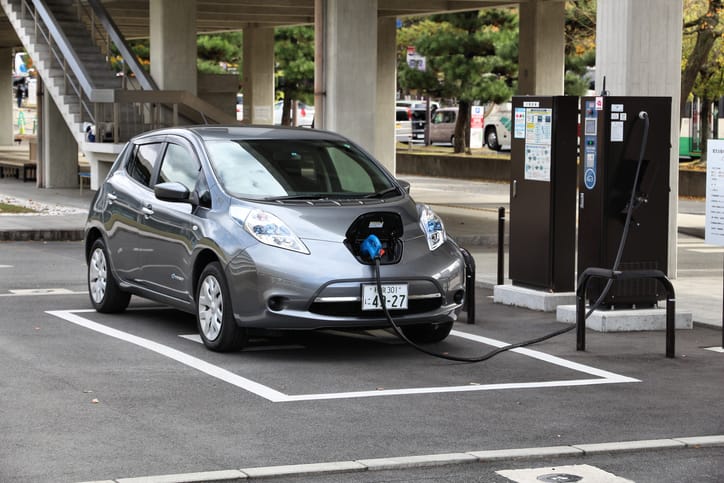Affordable Electric Cars: Chevrolet Bolt EV vs. Nissan Leaf

The electric vehicle (EV) market is rapidly evolving, but affordable options are still a major consideration for many drivers. Two of the frontrunners in this segment are the Chevrolet Bolt EV and the Nissan Leaf. Both offer a practical and eco-friendly way to get around without breaking the bank. But with distinct features and target audiences, deciding between the Bolt and the Leaf can be a close call. This comprehensive guide will delve into the key aspects of these two compelling electric cars, helping you determine which one best suits your needs.
Range and Efficiency
Range anxiety – the fear of running out of power before reaching your destination – is a common concern for EV newcomers. Here, the Chevrolet Bolt EV takes a clear lead. It boasts an impressive EPA-estimated range of 259 miles on a full charge, significantly exceeding the Nissan Leaf's offering. The base Leaf S provides a range of 149 miles, while the higher trim Leaf Plus bumps it up to 223 miles. While the Leaf Plus offers a more competitive range, the Bolt still holds the advantage for those looking for maximum travel distance between charges.
When it comes to efficiency, both cars are excellent choices. The Bolt EV achieves a combined 120 MPGe (miles per gallon equivalent), while the Leaf offers between 115 MPGe (Leaf Plus) and 142 MPGe (Leaf S). This translates to significant cost savings on electricity compared to gasoline-powered vehicles.
Performance and Driving Dynamics
The Chevrolet Bolt EV offers a more spirited driving experience. Its electric motor generates a zippy 200 horsepower, allowing it to accelerate from 0 to 60 mph in a brisk 6.5 seconds. The Nissan Leaf provides a more relaxed ride. While not sluggish, its 148 horsepower motor translates to a 0-60 mph time of around 7 seconds.

Both cars prioritize comfort and maneuverability, making them well-suited for city driving. The Bolt's steering is slightly more responsive, while the Leaf's softer suspension offers a smoother ride on uneven roads.
Interior Comfort and Cargo Space
The Bolt EV and Leaf offer seating for five passengers, but their interiors cater to slightly different preferences. The Bolt provides more legroom and headroom for rear passengers, making it a more comfortable choice for families with children. The Leaf, however, offers more cargo space behind the rear seats – 23.6 cubic feet compared to the Bolt's 16.6 cubic feet. If you frequently carry luggage or groceries, the Leaf might be the more practical option.
In terms of interior design and materials, both cars prioritize functionality over luxury. The Bolt's cabin has a modern, minimalist aesthetic with a focus on user-friendly technology. The Leaf's interior feels slightly more dated but still offers comfortable seating and a well-organized layout.
Technology and Features
The Chevrolet Bolt EV comes well-equipped with standard features like a 10.2-inch touchscreen infotainment system, Apple CarPlay, Android Auto, and a suite of driver-assistance technologies, including automatic emergency braking and lane departure warning. Higher trims offer additional features like a heated steering wheel and adaptive cruise control.
The Nissan Leaf also offers a good range of standard features, including an infotainment system with touchscreen display, smartphone connectivity, and safety features like automatic emergency braking. However, some features found on higher trims of the Bolt, such as adaptive cruise control, are not available on the Leaf.

Price and Value
The Chevrolet Bolt EV has a starting MSRP (Manufacturer's Suggested Retail Price) of around $31,000, while the Nissan Leaf starts at a slightly lower $28,000 for the base S trim. However, it's important to consider both federal and state tax incentives for electric vehicles. These incentives can significantly reduce the upfront cost, making both cars even more affordable.
In terms of value proposition, the decision depends on your priorities. The Bolt EV offers a significant advantage in driving range and delivers a more engaging driving experience. The Leaf counters with a lower starting price and slightly more cargo space. Ultimately, the best value comes down to which features are most important to you.
Ownership and Maintenance
Both the Chevrolet Bolt EV and the Nissan Leaf benefit from the inherent advantages of electric vehicles – lower maintenance costs compared to gasoline-powered cars. Electric motors require significantly less maintenance than gasoline engines. Additionally, regenerative braking extends the life of your brakes by reducing reliance on friction brakes.
Chevrolet and Nissan both offer competitive warranty packages for their electric vehicles. The Bolt EV comes with a 3-year/36,000-mile bumper-to-bumper warranty and an 8-year/100,000-mile warranty for the battery pack and electric drive motor. The Nissan Leaf offers a similar warranty with a 3-year/36,000-mile comprehensive warranty and an 8-year/100,000-mile warranty for the battery.
The Final Verdict
Choosing between the Chevrolet Bolt EV and the Nissan Leaf is a close call. Here's a quick recap to help you decide:
- For Maximum Range and Performance: Choose the Chevrolet Bolt EV. Its superior range and zippy acceleration make it ideal for those who prioritize long-distance travel and a more engaging driving experience.
- For affordability and Cargo Space: Consider the Nissan Leaf. Its lower starting price and slightly larger cargo space might be more attractive for budget-conscious drivers with occasional cargo needs.
- For a Comfortable Ride: Both cars offer a comfortable ride, but the Leaf's softer suspension might be preferable for those who prioritize a smooth ride over sharper handling.
Ultimately, the best choice depends on your individual needs and priorities. Test driving both cars is highly recommended to get a feel for their driving dynamics and interior comfort. By carefully considering your driving habits, budget, and desired features, you can make an informed decision and select the electric car that best suits your lifestyle.
